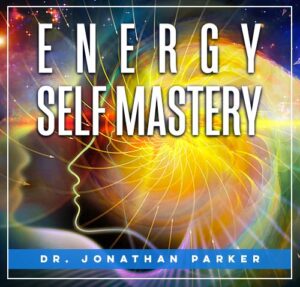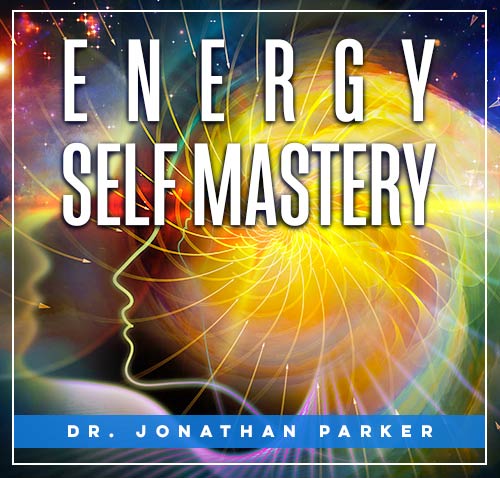Reiki energy healing: What to expect

Before diving in, please note: This post is for informational purposes only. If you’d like to know more about how we approach topics, feel free to check out our friendly Disclaimer Page.
Hey there, amazing readers! 🖐️ Just a quick note: yes, we know there are a lot of ads here. Trust us, we get it—it’s not the prettiest look, but they help us keep this blog alive and kicking. Those pesky little ads cover the costs of all the behind-the-scenes magic, from hosting and tech stuff to creating content we hope you’ll love.
We’re committed to delivering quality posts, and your support (even just sticking around despite the ads) means everything to us. So, bear with us, and thanks for helping us keep the good vibes rolling. Now, on to the fun stuff! 😉
TRANSLATE BUTTON AT THE END OF THE ARTICLE
A Quick Overview
Reiki energy healing is a fascinating and often misunderstood practice that many people are beginning to explore.
If you’re here, you probably want to know what it’s all about.
I remember my first encounter with Reiki; it felt like stepping into a cozy nook where the stress of the outside world melted away.
This article will guide you through everything you need to know about Reiki, from its roots and how it works to what you can expect during a session and the benefits it can bring to your life.
Let’s dive in together!
Understanding Reiki: An Introduction to Energy Healing
Reiki is a form of energy healing that focuses on channeling universal life energy.
Sounds intriguing, right?
The idea is that this healing energy flows through all living things.
Practitioners believe that when this energy is out of balance, it can lead to physical, mental, or emotional issues.
Think of it like plugging in your phone to recharge: Reiki helps to plug you back into that life force.
During a Reiki session, the practitioner lightly places their hands on or near your body, allowing energy to flow.
You may feel a sense of relaxation wash over you, often compared to a warm, gentle hug.
It’s a calming experience aimed at restoring your vitality and well-being.
While some people view Reiki as an alternative therapy, others see it as a complementary approach to traditional medicine.
The beauty of Reiki is that it can coexist with various treatments, enhancing their efficacy.
If you’re curious or skeptical, it’s perfectly okay; many people start with a healthy dose of curiosity.
The Basics of Reiki: History and Origins Explained
The roots of Reiki can be traced back to Japan in the early 20th century.
It was developed by Dr.
Mikao Usui, who sought to create a system of natural healing.
Legend has it that during a 21-day meditation retreat on Mount Kurama, he received the insight that led to the establishment of Reiki.
Imagine having such a profound moment of clarity!
After developing his practice, Dr.
Usui taught it to others, leading to the formation of a lineage that continues today.
A significant figure in the spread of Reiki was Hawayo Takata, who brought it to the West in the 1930s.
Since then, Reiki has blossomed into various styles and approaches, but the core principles remain the same.
Many cultures have embraced energy healing, from Traditional Chinese Medicine to Indian Ayurveda.
Reiki shares commonalities with these practices, emphasizing the balance of energy in the body.
The beauty of Reiki lies in its adaptability, making it approachable for various belief systems.
How Reiki Works: Unleashing Healing Energy Within
So, how does Reiki actually work?
At its core, Reiki is based on the belief that everything is energy.
Our bodies, thoughts, and emotions all vibrate at specific frequencies.
Master your Energy and Awaken Your Spirit – start your journey here.
When we experience stress or illness, these frequencies can fall out of sync.
Reiki practitioners act as conduits for healing energy, helping to restore balance.
During a session, the practitioner works to clear blockages and encourage the energy to flow freely through the body.
It’s like untangling a knotted string; once the knots are gone, everything can move smoothly again.
Some practitioners use specific techniques, such as hand positions or symbols, to enhance the energy flow.
One thing I find fascinating is that Reiki doesn’t require physical touch to be effective.
Some practitioners work from a distance, believing that intention can direct the energy.
Whether you’re physically present or not, the energy can still reach you.
It’s a beautiful reminder of the connection we share with one another.
What to Expect During a Reiki Session: A Step-by-Step Guide
Ready for your first Reiki session?
Here’s a breakdown of what you can expect from start to finish:
Initial Consultation: Most practitioners will start with a conversation about your needs and concerns.
This is your chance to ask questions and express what you hope to gain from the session.
Creating a Safe Space: Practitioners typically create a calming environment.
You might find soft music, dim lighting, or even aromatherapy involved.
It’s all about helping you relax.
Getting Comfortable: You’ll be asked to lie down fully clothed, often on a massage table.
Some practitioners may provide blankets or pillows for comfort.
The Healing Process: The practitioner will place their hands lightly on or near you.
You might feel warmth, tingling, or a deep sense of relaxation.
Silent Reflection: This is often the most profound part.
The practitioner remains quiet, focusing on channeling energy while allowing you to sink into the experience.
Closing Conversation: After the session, practitioners often encourage sharing any sensations or insights you experienced.
This dialogue can help integrate the healing.
Aftercare Guidance: You might receive suggestions about hydration or rest to help you process the energy shift.
The entire experience can last anywhere from 60 to 90 minutes, but time often feels suspended.
I still remember finishing my first session feeling lighter, as though a weight had been lifted.
Preparing for Your First Reiki Session: Tips to Follow
Preparation is key to getting the most out of your Reiki experience.
Here are some tips to help you get ready:
Hydrate: Drink plenty of water leading up to your session.
Staying hydrated helps your energy flow.
Wear Comfortable Clothing: Choose loose, comfortable clothes that make you feel relaxed.
You want to be able to let go!
Arrive Early: Give yourself some time to settle in.
Arriving early allows you to calm your mind and prepare for the session.
Set an Intention: Think about what you hope to achieve through Reiki.
This intention can help guide the energy during the session.
Let Go of Expectations: Stay open to the experience without specific outcomes in mind.
Sometimes the most significant shifts happen when we least expect them.
Master your Energy and Awaken Your Spirit – start your journey here.

Avoid Heavy Meals: Eating a large meal right before might make you feel sluggish.
A light snack is perfectly fine.
By taking these steps, you’re setting yourself up for a more fulfilling experience.
Common Experiences: Sensations During a Reiki Treatment
During a Reiki session, people often report a range of sensations.
Here are some common experiences:
Warmth: Many feel a gentle heat radiating from the practitioner’s hands.
It’s like being wrapped in a cozy blanket.
Tingling: Some experience tingling sensations, often in the limbs.
It’s a sign that energy is moving!
Deep Relaxation: Most people drift into a deep state of relaxation.
You might find yourself dozing off or feeling incredibly peaceful.
Visualizations: Some individuals report seeing colors or images during treatment.
This can be part of your mind’s way of processing energy.
Emotional Release: It’s not uncommon to feel emotions surfacing.
Tears or laughter can emerge as you release pent-up feelings.
Understanding these sensations can help normalize your experience.
Remember, everyone’s journey is unique!
After Your Reiki Session: What Happens Next?
After your Reiki session, you might wonder what to expect.
Here’s a look at some common post-session experiences:
Feeling Rejuvenated: Many people leave feeling refreshed and energized.
It’s like a mental clarity that follows a good night’s sleep.
Emotional Processing: You may find yourself processing emotions that surfaced during the session.
Give yourself the space to feel these emotions.
Physical Changes: Some report changes in physical symptoms.
You might notice a decrease in tension or pain.
Need for Rest: A few people feel a bit tired after.
This is normal as your body integrates the energy shift.
Napping or resting can be beneficial.
Increased Awareness: After a session, you might feel more attuned to your body’s needs.
Listen to what it’s telling you!
Follow-Up: Consider reaching out to your practitioner for any follow-up insights or advice.
They can provide valuable guidance as you process the experience.
Embrace whatever comes up for you after the session.
It’s all part of the healing journey!
Benefits of Reiki Healing: Physical, Mental, and Emotional Gains
The benefits of Reiki are extensive and can vary from person to person.
Here’s a closer look at what many people experience:
Stress Reduction: One of the most widely recognized benefits of Reiki is its ability to reduce stress.
Many individuals leave feeling lighter and more at ease.
Pain Relief: Some report a decrease in chronic pain or discomfort after sessions.
It’s not a cure-all, but it can be a helpful complementary treatment.
Emotional Clarity: Reiki can help you process emotions and gain clarity.
This newfound awareness often leads to personal growth.
Enhanced Sleep: Many people find that Reiki improves their sleep quality.
Better rest can enhance overall well-being.
Boosted Immune Function: By promoting relaxation, Reiki can support the immune system.
When our bodies are relaxed, they function better.
Increased Energy: Some find that Reiki revitalizes them, leaving them feeling invigorated and ready to tackle life.
Spiritual Growth: For many, Reiki opens doors to spiritual exploration and deeper understanding of themselves.
Isn’t it amazing how a gentle touch can lead to such profound changes?
Who Can Benefit from Reiki? Everyone Can Join In!
Reiki isn’t exclusive.
It’s a practice that can benefit anyone, regardless of age or background.
Here’s a look at who can find value in Reiki:
Individuals Seeking Stress Relief: If you’re feeling overwhelmed, Reiki can provide a serene escape.
Chronic Pain Sufferers: Those with persistent pain conditions may find relief through Reiki sessions.
Emotional Well-Being: People navigating emotional challenges can benefit from the calming effects of Reiki.
Caregivers and Healthcare Workers: Those who give so much to others often need restorative practices for themselves.
Spiritual Seekers: If you’re on a path of spiritual growth, Reiki can enhance your journey.
Anyone Open to Healing: Simply being open to the idea of energy healing can pave the way for benefits.
Reiki is for anyone willing to explore and connect with their own energy.
Why not give it a shot?
Finding a Qualified Reiki Practitioner: Key Considerations
Choosing the right Reiki practitioner can enhance your experience immensely.
Here are some tips for finding someone who resonates with you:
Check Credentials: Look for practitioners with certifications and training.
This ensures that they have a solid foundation in Reiki principles.
Ask for Recommendations: Word of mouth can be powerful.
Ask friends or family if they’ve had positive experiences with a particular practitioner.
Read Reviews: Online reviews can provide insights into practitioners’ styles and effectiveness.
Trust Your Intuition: If someone feels right to you, trust that instinct!
Energy is all about connection.
Schedule a Consultation: Many practitioners offer initial consultations.
This can help you gauge their approach and see if it aligns with your needs.
Inquire About Their Approach: Each practitioner may have a unique style.
Don’t hesitate to ask about their methods and philosophies.
Finding a practitioner you connect with makes all the difference.
Take your time; this is about you!
Addressing Myths and Misconceptions About Reiki Healing
As with many practices, there are misconceptions surrounding Reiki.
Let’s clear the air:
It’s Not a Religion: Reiki is not tied to any specific religion; it can complement various belief systems.
You Don’t Have to Believe for It to Work: Many skeptics have found value in Reiki, regardless of their beliefs.
It’s Not a Substitute for Medical Treatment: Reiki can be a complementary approach, but it shouldn’t replace conventional medical care.
It’s Not Just for the Ill: Reiki can benefit anyone, whether you’re dealing with stress or simply seeking relaxation.
It’s Not Always About Touch: Distance Reiki is effective and doesn’t require physical contact.
Understanding these myths can help you approach Reiki with an open heart and mind.
Embracing Reiki: Making It Part of Your Wellness Journey
Incorporating Reiki into your life can be a transformative experience.
Here are some suggestions:
Regular Sessions: Consider making Reiki a regular part of your self-care routine.
Whether monthly or bi-weekly, the benefits can accumulate.
Learn Reiki Yourself: Many practitioners offer classes.
Learning Reiki can empower you to practice on yourself and others.
Combine with Other Practices: Integrating Reiki with yoga, meditation, or other wellness practices can enhance your overall well-being.
Create a Calming Space at Home: Set up a peaceful corner in your home for self-Reiki or meditation.
This can serve as your sanctuary.
Stay Open-Minded: Reiki is an invitation to explore your energy and intuition.
Stay curious about your experiences.
Share Your Journey: Talk to friends and family about your experiences.
Sharing insights can foster community and support.
Embracing Reiki can be a beautiful addition to your wellness journey, guiding you towards balance and harmony.
Conclusion
Reiki energy healing is a powerful tool for enhancing well-being on multiple levels.
From its rich history to the sensations experienced during a session, there’s so much to explore.
Whether you’re seeking stress relief, emotional clarity, or simply a moment to unwind, Reiki offers a gentle yet profound approach to healing.
As you embark on this journey, remember to stay open, curious, and kind to yourself.
Who knows what delightful revelations await you?
Happy healing!

The Enlightenment Journey is a remarkable collection of writings authored by a distinguished group of experts in the fields of spirituality, new age, and esoteric knowledge.
This anthology features a diverse assembly of well-experienced authors who bring their profound insights and credible perspectives to the forefront.
Each contributor possesses a wealth of knowledge and wisdom, making them authorities in their respective domains.
Together, they offer readers a transformative journey into the realms of spiritual growth, self-discovery, and esoteric enlightenment.
The Enlightenment Journey is a testament to the collective expertise of these luminaries, providing readers with a rich tapestry of ideas and information to illuminate their spiritual path.
Our Diverse Expertise 🌟
While our primary focus is on spirituality and esotericism, we are equally passionate about exploring a wide range of other topics and niches 🌍📚. Our experienced team is dedicated to delivering high-quality, informative content across various subjects ✨.
To ensure we provide the most accurate and valuable insights, we collaborate with trusted experts in their respective domains 🧑🏫👩🏫. This allows us to offer well-rounded perspectives and knowledge to our readers.
Our blog originally focused on spirituality and metaphysics, but we’ve since expanded to cover a wide range of niches. Don’t worry—we continue to publish a lot of articles on spirituality! Frequently visit our blog to explore our diverse content and stay tuned for more insightful reads.







